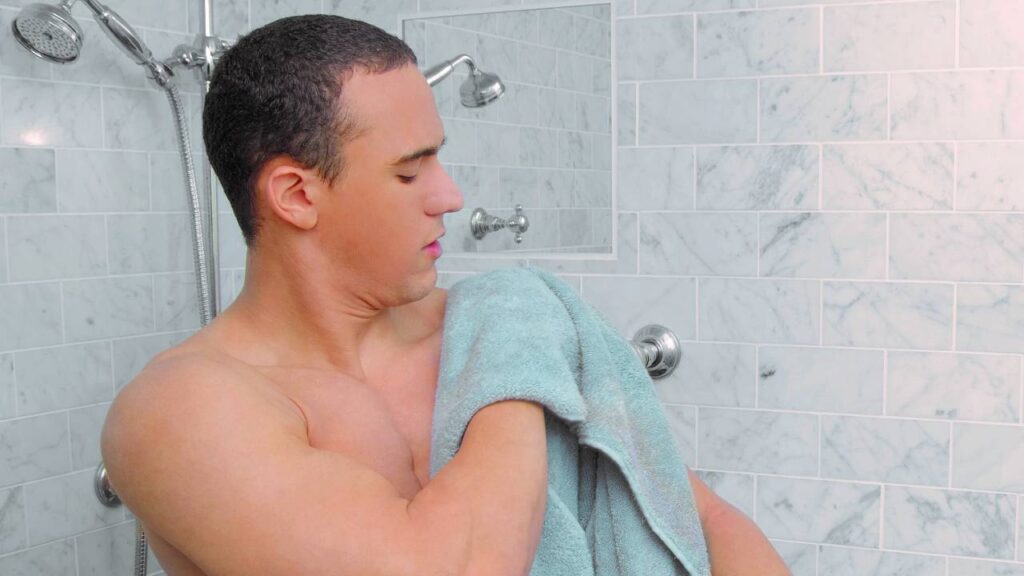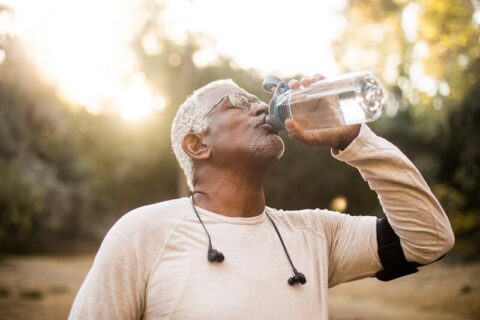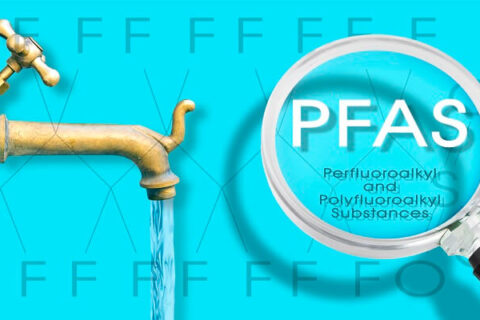Hard vs. Soft Water Effect on Showers

Did you know that the hardness of your water has an effect on your shower?
We’re not just talking about the shower itself, even though it does impact your shower fixture and walls. Hard water also affects the quality of your shower, and if your water is too hard, you’re likely to notice dry skin and damaged hair, and maybe even skin irritation. How can hard water have that much of an impact? To understand, you’ll need to understand the difference between hard and soft water.
While you have probably heard the terms hard water and soft water, you may not really understand the difference between them and what these terms really mean.
Whether water is hard or soft depends on the minerals in the water.
If water is hard, it contains dissolved minerals like calcium, magnesium, lime, and chalk, in high concentrations. How do they get into your water? As groundwater moves through the earth, it runs through natural mineral deposits and picks up mineral ions along the way. The soil around the water source for a local municipal supply determines the mineral composition of the water.
Soft water, on the other hand, contains a low concentration of minerals. Is there naturally occurring soft water? Yes, but not much in Arizona. It’s more likely that you’ll be able to obtain soft water using a water softener. Water can be measured on a hardness scale that ranges from 0 to 1 grains of minerals per gallon for soft water to 10 or more grains per gallon (GPG) in very hard water. Think of it this way; if you took a gallon of water that measured 5GPG on the hardness scale, and you were able to pull out the mineral content and collect it, the minerals you’d end up with would be about the size of an aspirin tablet. If the water was 10 GPG, that would result in about two tablets of aspirin worth of minerals. In soft water, the minerals you’d end up with wouldn’t be worth noting, they’d be so miniscule.
So, what happens to all of those minerals as the water enters your home?
It causes buildup in the pipes and on the fixtures. In the bathroom, limescale will build up and leave behind a white, hard substance on the shower head, faucet, and shower handles. In fact, if you look at your shower head, you may even notice limescale building up and beginning to clog the holes, restricting the flow of water and making your water pressure less effective. Soap scum is another problem that will affect your shower, as a reaction between soap and the calcium and magnesium in the water causes a chalky substance that’s difficult to remove. Hard water leads to more spotting on your shower doors. Limescale is also hard to remove, and trying to clean it with an abrasive pad can damage the finish of your shower fixtures.
If this residue is so difficult to remove from the shower, imagine how much of an impact it can have on your hair and skin. The minerals in hard water can coat your hair follicles so that your shampoos and conditioners won’t work as well. You’ll end up with dull, dry hair that is lifeless and hard to style. What’s more, hard water can leave mineral deposits behind on your scalp, and this can cause the look of dandruff in your hair. If you color your hair, the color will fade more quickly when you wash your hair with hard water.
Hard water can also take a toll on your skin.
The same chemical reaction between soap and minerals that creates soap scum on your shower can leave residue behind on your skin. Your skin may react to this, and you’ll experience skin irritation and dry skin. The mineral deposits that hard water leaves behind on your skin can cause your natural moisture levels to shift, which can be extremely problematic for those with sensitive skin or a condition like eczema. Just by taking regular showers, you’ll be damaging your skin and hair.
How can you solve this?
Improve your water quality and you’ll improve the quality of your showers. When you’re ready for a better shower, you’re ready for a water softener. If you think you might benefit from a whole home water softener system, the first step is to have your water analyzed. For a free water analysis and consultation, trust Kinetico Quality Water to test your water and help develop a treatment plan. Kinetico is Tucson, Arizona’s local source for water treatment, providing the cleanest, greenest, most efficient water systems ever made. We understand the challenges of the Tucson area, and our systems use less water than traditional water softeners (and no electricity). We also stand behind our products, with the most comprehensive warranty coverage in the industry. Call 520.428.5497 today or contact us for a free quote.


